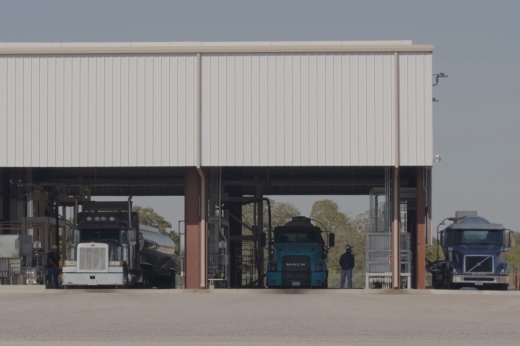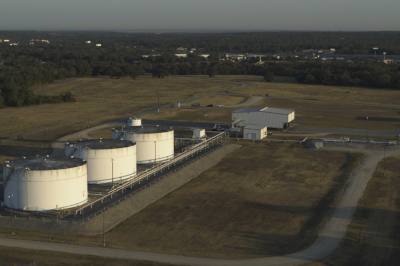The overview
The Bastrop-Austin Texas Pipeline will address reliability issues due to increased demand and traffic congestion. According to Andy Saenz, Flint Hills Resources public affairs regional manager, pipelines are a safer and more reliable method of delivering fuel.
“Without a dedicated pipeline, fuel truck deliveries will need to continue to increase to keep up with demand, based on the airport’s growth projections,” Saenz said in an email. “A pipeline is able to provide continuous supply and adjust instantly to variable demand, without being affected by issues such as traffic congestion, driver availability and weather.”
ABIA is the largest airport in the country to rely on fuel delivered by trucks, according to an Oct. 17 news release. Each day, tanker trucks make over 100 round trips to supply the airport’s demand—a 40-mile route.
"The Austin Airport faces a pressing challenge as the demand for fuel, both presently and in the future, exceeds current infrastructure capabilities," AUSFUEL Austin airline fuel consortium said in a statement. "This growing need for dependable fuel supply has reached a critical level, impacting the reliability of air travel. Frequent fuel shortage warnings have become a concern at AUS [ABIA], requiring airlines to carry excessive fuel loads, leading to operational inefficiencies for passengers and carriers. This pipeline project will deliver a reliable supply and address these challenges.”
What you need to know
Not yet finalized, the majority of the pipeline will follow an existing public right of way along Hwy. 71. According to Saenz, the Flint Hill Resources will collaborate with landowners for access to temporary or permanent easements.
"I have shared my expectations for the developer to provide robust community engagement to discuss environmental impacts; and address safety, health and quality of life concerns with the community," Austin City Council member Vanessa Fuentes said. "Most importantly, I expect the developer to be transparent and listen to the community’s feedback on the project."
As of publication, there is currently no date for construction on the project to begin. Construction on the pipeline is expected to take six months.
“The pipeline will be designed, built and operated according to the most advanced safety standards, including the use of cathodic protection, anticorrosion coating, high-frequency welding and advanced leak detection monitoring,” Saenz said.
According to Saenz, Flint Hills Resources will conduct public meetings as part of the permitting process.






